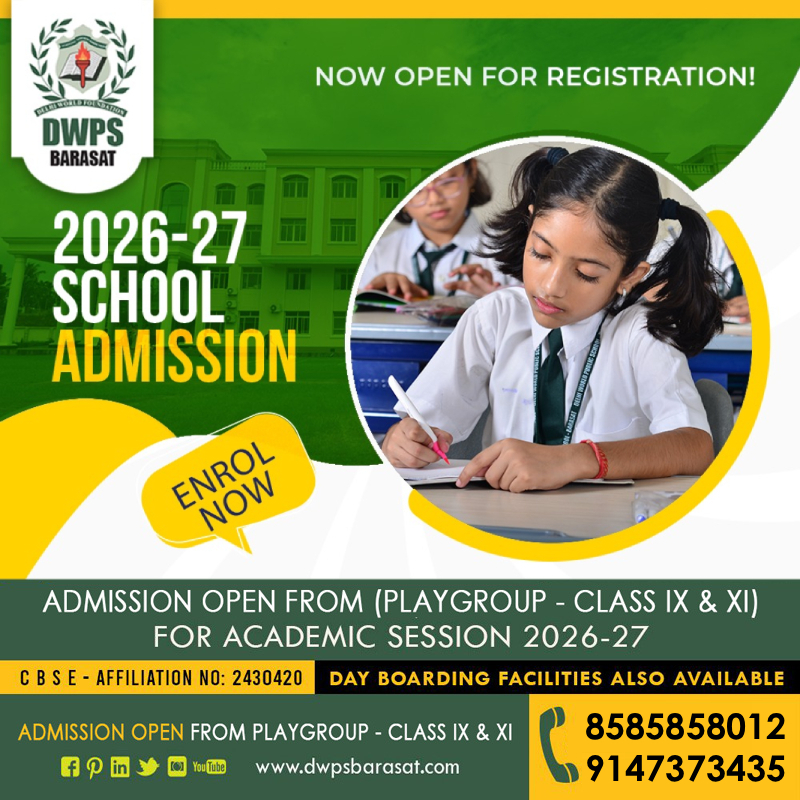
What Is a Composite Skill Lab in CBSE Board?
In recent years, the education system in India has experienced a massive shift. The execution of NEP (National Education Policy) 2020 now fosters multidisciplinary learning and vocational education. It combines the digital revolution and skill-based education to bring in a new era of learning. The most recent development in this transformation is the composite skill lab.
The brainchild of CBSE (Central Board of Secondary Education), the composite skill lab aims to create an interactive and hands-on learning environment for students. This article explores the meaning of composite lab, importance, requirements, and steps taken by CBSE schools to implement this latest method of learning.
What is a composite skill lab?
A composite skill lab is a multidisciplinary learning space that stimulates a hands-on learning environment in fields such as:
- artificial intelligence
- coding
- design thinking and innovation
- data science
- information technology
- travel and tourism
- mass media
- rockets
- satellites
- augmented reality
Hands-on training in these disciplines plants several essential skills in the arsenal of children and helps them keep their heads above water in this thoroughly competitive world.
A specialized curriculum and well-equipped lab give them access to the most cutting-edge technologies that fortify their theoretical and conceptual knowledge of STEM subjects, along with several other creative streams.
From robotic kits to coding platforms, augmented reality setups, AI and machine learning modules, computers, interactive displays, and drones, etc., form a part of the learning platform.
A composite skill lab works as an avenue that allows students to navigate different career paths through a practical, hands-on approach. With CBSE mandating these labs in every school, students get exposed to various fields early in their lives, which helps them in ways unimaginable. The skills further helps students understand their interests at an early age and carve a meaningful career path.
The learning setup taps into several other essential skills, including problem-solving, critical thinking, creativity, imagination, adaptability, and more. It teaches students to conjugate their astuteness with theoretical and practical knowledge while approaching a problem. Students who pass out with these skills have a better chance of keeping up with the pace of the dynamic job market.
Motive of composite skill lab
Composite skill labs are incepted with the motive of breeding individuals who could keep up with the pace of the modern, technological-forward world. In the age and time where technology prevails and practical skills matter more than theoretical knowledge, composite labs help students acquire new abilities through learning and practice to thrive in the fast-paced world.
Nurtured by CBSE schools and STEM-based educational entities, these skill labs serve as the base for learners to build an interactive and experiential learning experience. It exposes students to various career options and imparts valuable skills much before they enter the job ecosystem. Also, it gives students an opportunity to explore their strengths and interests, understand different industries, and get practical knowledge in various vocations. It prepares students to jump into the highly competitive job market well-prepared and confident.
A breakdown of CBSE skill education
CBSE has dictated a well-defined curriculum for skill education. The modules are designed keeping the age, mental prowess, and learning abilities of students at different levels in mind.
For instance, modules for CBSE skill education class 10 are more precise and advanced compared to modules for class 6.
CBSE has divided the curriculum into three levels:
- Middle school level- from class 6 to 8
- Secondary level- class 9 and 10
- Senior secondary level- Class 11 and 12
Benefits of CBSE skill education
CBSE skill education imparted through composite skill labs aims at integrating several practical and vocational training subjects into the curriculum to create a multifaceted learning environment. The benefits are:
It imparts valuable vocational skills
The first and most obvious benefit of the composite skill lab is that it imparts valuable practical skills to students. The labs are equipped with all the modern technologies, and the curriculum includes thorough hands-on training in subjects relevant beyond the realms of an institution. It also helps students to understand various industries and career options.
It accelerates academic progress
What students learn through hands-on experience stays with them for the longest time. Practical application also helps them understand the difficult theoretical concepts with ease. It encourages analytical and problem-solving skills. All these things contribute to a better academic performance.
A business-oriented approach
By integrating multiple disciplines, composite skill labs create an immersive environment for developing essential practical skills. Students are encouraged to participate in projects that hone their creativity, adaptability, collaboration, networking, and problem-solving skills. All these skills cultivate a business-oriented and profit-driven mindset.
Training for the competitive job market
Vocational training and hands-on projects mimicking real job scenarios equip students with a better understanding of the challenges of the real job market. They learn to navigate the commercial landscape before graduating from school.
How are CBSE schools implementing composite skill labs?
To secure the future of their students, CBSE schools across the country have been asked to integrate and implement a composite skill lab in their curriculum. Here is how we are doing it:
Upgrading infrastructure
Composite skill lab requirements go far beyond basic digitalized tools. Equipped with specialized tools, the lab provides a disciplined and focused educational setting. An upgraded infrastructure is essential for a thriving CBSE skill education ecosystem.
Upgrading curriculum
In order to garner maximum benefit from this initiative, the board has curated a comprehensive curriculum. The upgraded curriculum allows schools to enrich the learning environment.
Teacher training
The biggest responsibility of nurturing students through composite skill labs lies on the shoulders of teachers. Teachers and facilitators require a deeper understanding of subjects, both theoretical and practical, to impart valuable knowledge.
Collaborating with thought leaders
The idea of composite skill labs is to prepare students for the job market. Collaborating with people within the industry facilitates desired outcomes. It also helps schools remain updated on the recent developments and changing scenarios of the job market, and adapt to them.
Our composite skill lab
Fulfilling the objectives of NEP 2020, composite skill labs in CBSE schools play a pivotal role in shaping the future of students. To equip its students with hard and soft skills required to meet the ever-changing demands of the professional world, DWPS Barasat has integrated skill-based learning into its curriculum.
At DWPS Barasat, cutting-edge infrastructure, a rigorous academic program, and dedicated staff work together to create an enriching learning atmosphere. An alliance with industry experts further bolsters the school’s motive to impart holistic skill education to its students and cement their future in the highly competitive professional world. Secure the future of your child by trusting us with their education.







